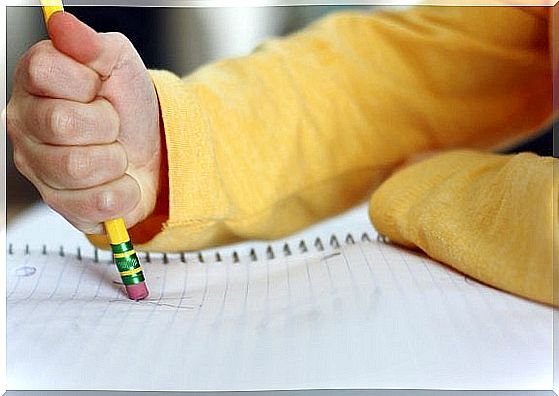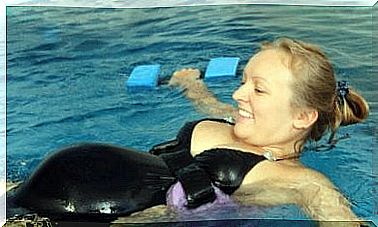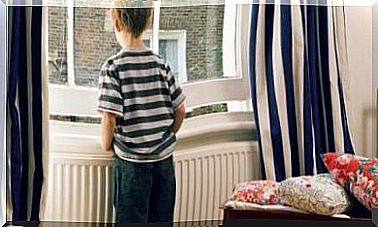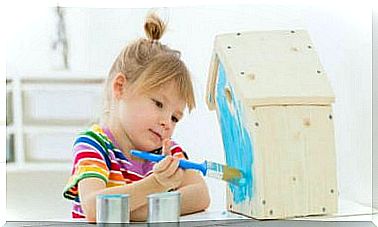When Children Make Many Spelling Mistakes

Learning to read and write is a long and complex task for children. If you have noticed that your child makes many spelling mistakes, you should know that there are several ways you can help him or her improve. In this article, we will tell you everything you need to know.
Word games, transcription exercises, and frequent reading are some of the best ways in which children can be helped to overcome their spelling mistakes.
We will offer several tips below that can help your child stop making spelling mistakes. Take notes, be patient, and do not forget that the goal is to improve through hard work and effort!
Advice to help your children avoid spelling mistakes
1. Develop phonological awareness
The first suggestion to help children overcome their spelling mistakes is to help them become more aware of phonetics. It is something absolutely fundamental when it comes to the development of spelling.
Children need to know how to pronounce a word correctly before they can try to spell it.
This means that children need to be able to recognize and distinguish the sounds of the spoken words. Only then will they be able to write them.
However, some children will have a weakness when it comes to phonetics and pronunciation. In this case, parents and teachers should help them develop in this area.
Word play
The time to play and learn has come. Remember, playing word games is a fun way to test children’s spelling skills. At the same time, it is a great opportunity to learn new words.

There is a wide variety of options. Of course, the most classic games are Scrabble, Scattergories, Boggle and Upwords. These are great tools to help the little ones practice spelling, and have fun at the same time.
Do not forget that children love games and games. Learning is always easier when you have fun.
3. Make short dictations
The third, on our list of suggestions, is to recite short dictations – one or two sentences – to help children make fewer spelling mistakes. You can improvise, or even take them from a magazine or book that captures your children’s interests.
At the same time, it is important for children to have access to reference books, whether at school or at home. When the time comes to correct your child, you can discuss the mistakes, and use them as a starting point for improvement.
4. Read often
Without a doubt, one of the best pieces of advice we can give you, to improve your child’s spelling ability, is to encourage them to read often. Ideally, your children should read at least 30 minutes a day.
Reading is a great exercise to develop the language, and improve the formation of sentences. This is because reading allows the brain to absorb words and sentences that children read in a natural way.
At the same time, if you really want to motivate your child to read, find reading material that is about something they are interested in. Of course, you also need to help your child find the time and place to read so that it becomes a routine.

5. Make a drawing
Finally, you can also use drawings as a memory-enhancing tool to improve spelling. Pictures are a great way for kids to remember how to spell words. To help your child with this, you can always turn words that are difficult to spell into pictures.
To do this, simply make a drawing with the word that your child has trouble spelling. Turn the letters into a picture. That way, your child will have a graphic presentation of the word so he or she can more easily hold on to it.
As you have observed, there are many easy ways to help children improve their spelling and avoid spelling mistakes.
However, keep in mind that forcing them to perform activities, or to be too demanding, can be counterproductive. Instead of helping, you can increase your child’s negative feelings about this problem.
We recommend that you try the above suggestions and try to motivate your child in a positive way. None of the strategies will work if your child does not have the right motivation or is not interested in improving.









